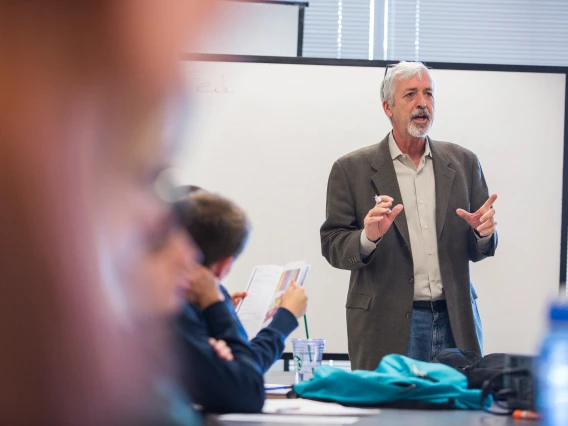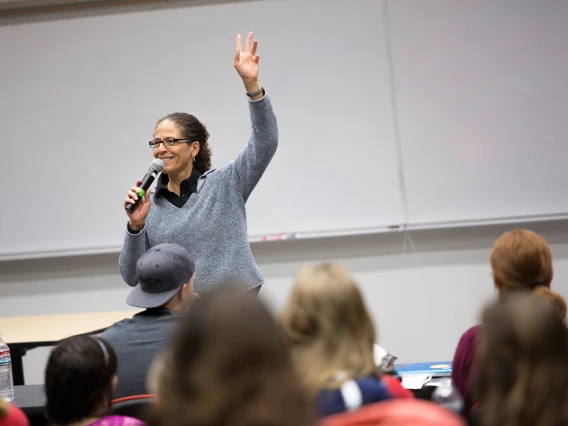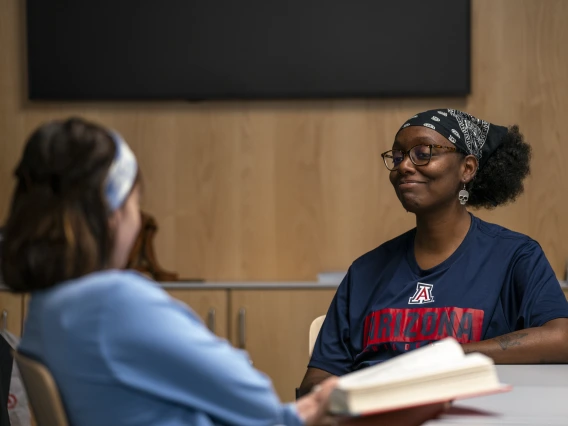
Graduate Mathematics Courses
Our program offers multiple different class types, outlined below, in order for students to gain the most from their experience here.

All Courses
The Department of Mathematics Graduate Program offers Research Tutorial Groups (RTGs), co-convened courses, independent studies, seminars, and a list of acceptable out of department courses in addition to core and regular math courses. You can learn more about these kinds of courses further down.

Special Topics Courses
Special topics courses are offered each term, with varying subject matter. Topics are proposed by faculty members and selected according to student interest, variation of subject, and timeliness. Special topics classes allow students take classes in subjects that are not taught every year but important, interesting, or helpful for research.

Core Courses
For each of the traditional core courses, students must either take the course and receive a grade of B or better in both semesters or earn a high pass on the corresponding written qualifying exam. The material in these courses is essential knowledge for all mathematicians, and it is assumed in all further advanced coursework in the department.
Algebra - MATH 511A & MATH 511B

Research Tutorial Groups
Research Tutorial Groups (RTG's) introduce graduate students to mathematical research and training at the end of the first year and beginning of the second year, typically well in advance of formal dissertation research. In the spring of the first year, students attend and host a lecture series on topics of current research across the Department. In the following fall, students choose a topic and advisor to work on research training., This experience is designed to be one semester and consist of individual or group work that is research or appropriate training toward research. The spring lecture series is one credit hour while the fall research group is three credit hours

Co-convened Courses
“Co-convened” courses are advanced undergraduate courses (400 level) which are also given a 500 level number. (E.g., Symbolic Logic is both Math 401A and Math 501A.) Graduate students may take these courses for graduate credit. They are mainly populated by senior level undergraduates and graduate students from other departments, but mathematics graduates students sometimes take these courses to fill in missing background or in Masters level coursework. A limited number of co-convened credits are applicable to the PhD or PhD Minor.

Independent Studies
Independent studies are arranged between faculty and students at the discretion of the faculty member. In a typical such course, the student would study a book or paper individually or in a book and meet regularly with a faculty member to discuss.


